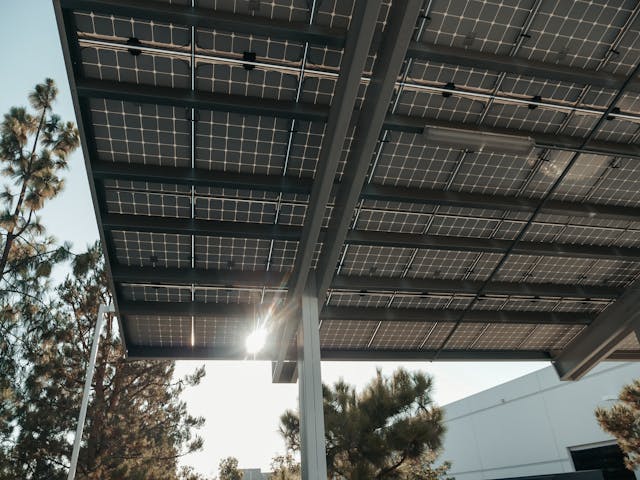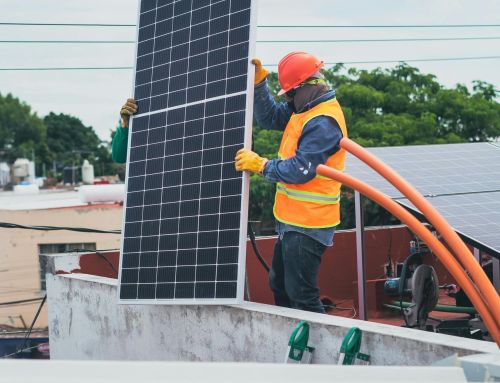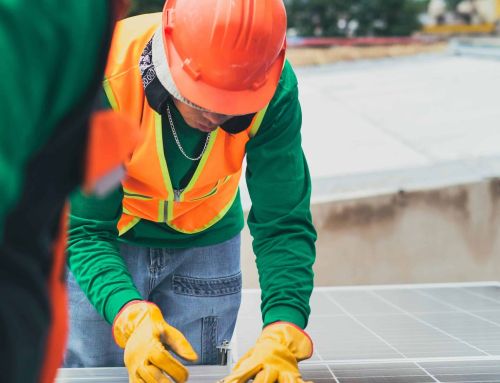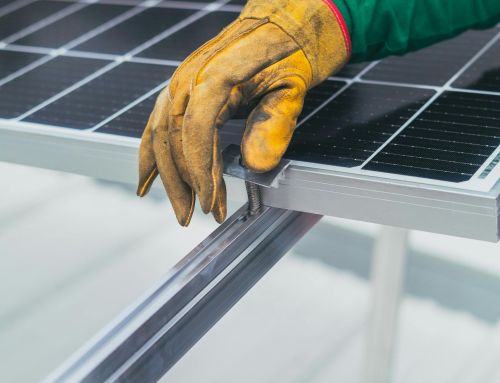Imagine this: You’re running a thriving factory, but the ever-rising cost of electricity is casting a shadow over your profits. What if there was a way to reduce your energy bills significantly? Enter the world of solar power!
Solar panels are becoming an increasingly attractive option for industrial facilities worldwide. They offer a clean, renewable energy source that can significantly reduce reliance on the grid. However, with various types of solar panels available, a crucial question arises: Which solar panels are best for industrial use?
Not to worry, fellow industrialists! This guide will light up the path to choosing the perfect solar panels for your powerhouse. Now lets explore the different contenders and discover the ideal fit for your industrial needs.
Key Considerations for Industrial Applications
While all solar panels convert sunlight into electricity, not all are created equal. When selecting which solar panels are best for industrial use, several key factors come into play:
Durability and Reliability
Industrial environments can be tough. Think scorching summer sun beating down on your roof, or occasional hailstorms in parts of New Zealand. Your chosen solar panels need to be robust enough to withstand the elements and deliver consistent performance over their lifespan.
Efficiency
Efficiency refers to the percentage of sunlight a panel can convert into electricity. Higher efficiency panels generate more power per square meter of roof space, which is crucial for maximizing energy production in large-scale industrial installations.
Temperature Coefficient
Solar panel efficiency can be affected by temperature. In hot climates, some panels experience a drop in efficiency. For industrial facilities, particularly those in sun-drenched regions like Auckland, choosing panels with a low temperature coefficient is essential for maintaining optimal performance.
Cost-Effectiveness
Let’s face it, budget matters. While upfront costs for solar panels are an investment, consider the long-term savings on electricity bills. Analyse the return on investment (ROI) for different panel options to make an informed decision.
Space Constraints
Industrial rooftops are valuable real estate. Choosing high-efficiency panels can help you generate the desired amount of energy with a smaller number of panels, optimizing your limited roof space.
Warranty
A strong warranty provides peace of mind. Look for a manufacturer who offers a lengthy warranty period on both the power output and workmanship of the panels.
The Contenders: Types of Solar Panels for Industrial Use

Now, let’s delve into the specific types of solar panels often considered for industrial applications:
- Monocrystalline Silicon Panels: These are the most common type of solar panel, known for their high efficiency and excellent performance in a variety of conditions. They are a solid choice for industrial facilities seeking a reliable and efficient solar solution.
- Polycrystalline Silicon Panels: A more affordable option compared to monocrystalline panels, these offer a slightly lower efficiency. However, their cost-effectiveness can be attractive for some industrial applications, particularly when space constraints are not a major concern.
- Thin-Film Solar Panels: These lightweight and flexible panels are a good option for uneven rooftops or those with limited weight capacity. However, their efficiency is generally lower than crystalline silicon panels.
Beyond the Panel: Additional Considerations for Industrial Solar
While choosing the right solar panels for industrial use is crucial, there are additional factors to consider for a successful solar installation:
System Design and Installation
Partnering with a reputable solar installer with experience in industrial applications is key. They will conduct a thorough site assessment, analyse your energy needs, design a customized solar system, and handle the installation process with expertise.
Monitoring and Maintenance
Regular monitoring of your solar system’s performance is essential to ensure optimal output. Routine cleaning and maintenance may also be necessary.
Financial Incentives
The good news is that going solar can come with financial benefits! Government rebates and other incentives can significantly reduce the upfront cost of a solar system. Research available grants and programs in your area to maximize your savings.
A Brighter Future for Industrial Energy

Transitioning to solar power can be a game-changer for industrial facilities. By carefully considering which solar panels are best for industrial use and the additional factors influencing your project, you can unlock a clean and cost-effective energy source for your operations.
Remember, solar power is a long-term investment. While the upfront costs may be significant, the potential savings on energy bills and the environmental benefits make it a worthwhile endeavor.
Here at Prolectrix, we understand the importance of solar panels for your commercial building. Our team of experts can guide you through the entire process, from assessing your energy needs to designing and installing a customized solar system that meets your specific requirements.
Final Word: Embracing the Solar Revolution
The future of energy is bright, and solar power is leading the way. By embracing solar energy, you’re not just reducing your carbon footprint; you’re also taking a proactive step towards a more sustainable and cost-effective future for your business. So, let’s use the power of the sun and illuminate your path to a brighter tomorrow!





